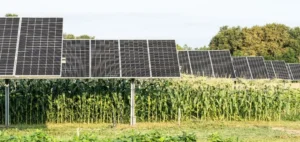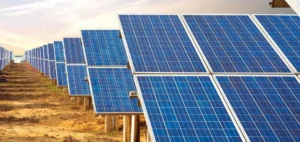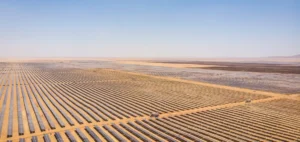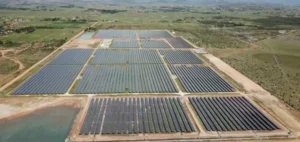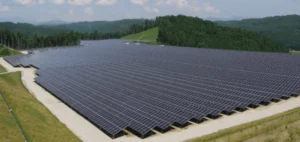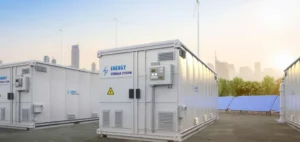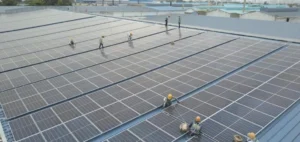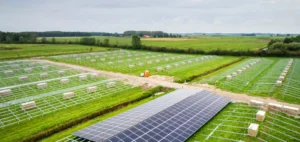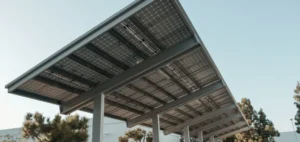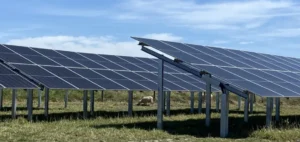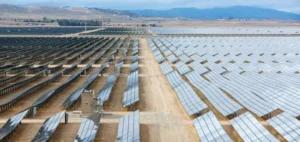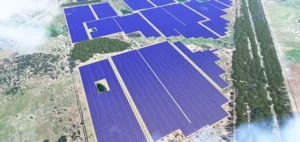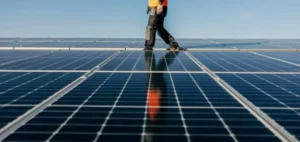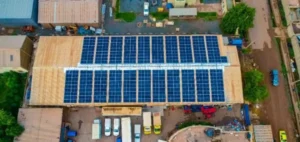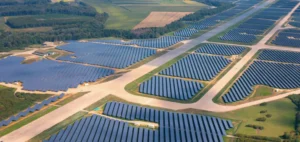In a significant move to reduce its dependence on coal and embrace renewable energy, Kosovo has begun construction of a groundbreaking 150 megawatt (MW) solar farm in the western part of the country. The initiative, led by the Solar Energy Group Europe (SEGE) consortium, brings together a group of international and local investors committed to propelling Kosovo into a greener, more sustainable future.
Construction of the Kosovo solar farm: a step towards energy diversification
Unlike many government-subsidized solar projects, the Kosovo Solar Farm is a pioneering venture that relies exclusively on market sales, without any form of government financial support. This demonstrates investors’ confidence and commitment to the potential of solar energy, as well as their belief in the ability of the open market to support and encourage renewable energy projects.
Construction of the solar farm is expected to be completed within the next 12 months, and production is expected to begin shortly thereafter. Once operational, the plant is expected to produce more than 243,000 megawatt hours (MWh) of clean electricity annually, according to Siemens Energy AG (ENR1n.DE), the German energy equipment and services group responsible for engineering, procurement and construction of the plant.
The importance of this project cannot be overstated, as Kosovo currently relies heavily on coal for over 90% of its domestic energy production. The rest of the energy comes from renewable sources, mainly wind power. With the construction of the solar farm, Kosovo aims to diversify its energy portfolio, reduce its dependence on coal and promote sustainable energy alternatives.
At a ceremony commemorating the start of construction near the western town of Gjakova, Kosovar Prime Minister Albin Kurti highlighted the transformative potential of clean energy. “By harnessing the potential of clean energy, we are paving the way for a greener, environmentally friendly future,” said Kurti. This sentiment reflects the government’s commitment to sustainable practices and a transition to a more sustainable energy landscape.
From coal to solar: Kosovo is committed to a cleaner future
Kosovo’s over-reliance on lignite, a soft coal known to be highly polluting when burned, is a major concern. The country has one of the largest reserves of lignite in the world, estimated at 12 to 14 billion tons, according to official figures. Kosovo’s two coal-fired power plants, which have been in operation for four and six decades respectively, are among the most polluting facilities in Europe. Their obsolete technology requires frequent shutdowns for repairs, which results in the import of expensive electricity and puts a strain on the country’s finances.
Recognizing the urgency of addressing these challenges, the current government of Kosovo has committed to completely eliminate the use of coal by 2050. This ambition is part of global efforts to combat climate change and promote sustainable development. As part of this effort, the government recently launched a 100 MW solar auction. By offering public land and a 15-year power purchase agreement, Kosovo aims to attract more investment in renewable energy projects and propel the country’s transition to a more environmentally friendly energy sector.
The construction of the 150 megawatt solar farm is a transformative step for Kosovo. With the support of international and local investors and the expertise of Siemens Energy AG, Kosovo is taking a bold step towards a greener future. As the solar farm moves closer to completion, the country looks forward to the positive impacts it will have on its energy landscape and its contribution to a cleaner, more sustainable world.



